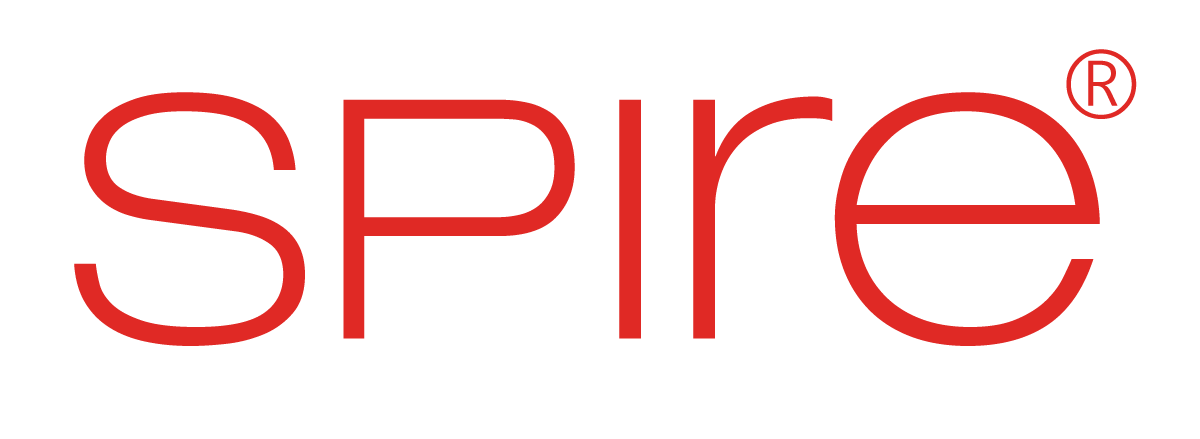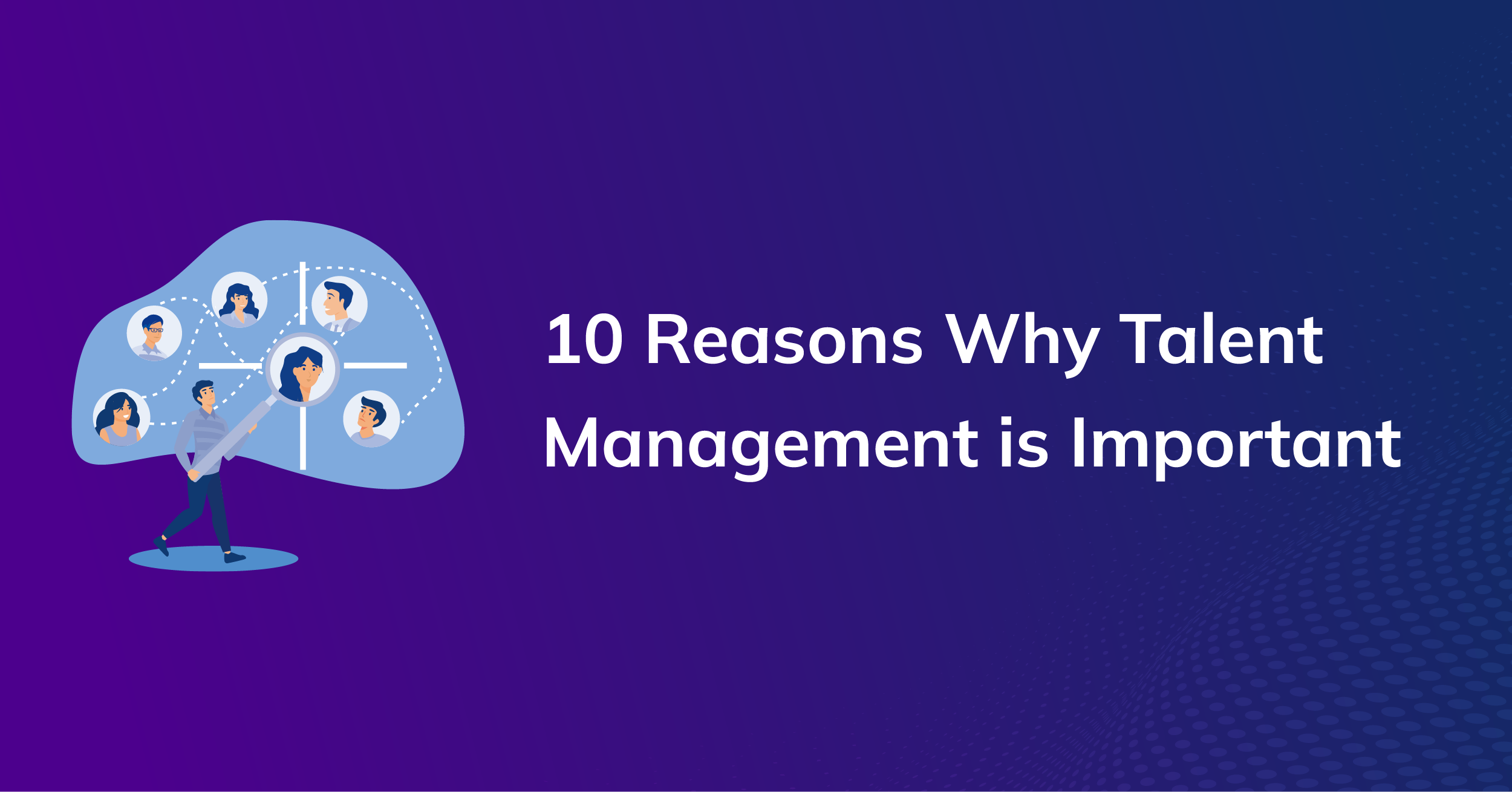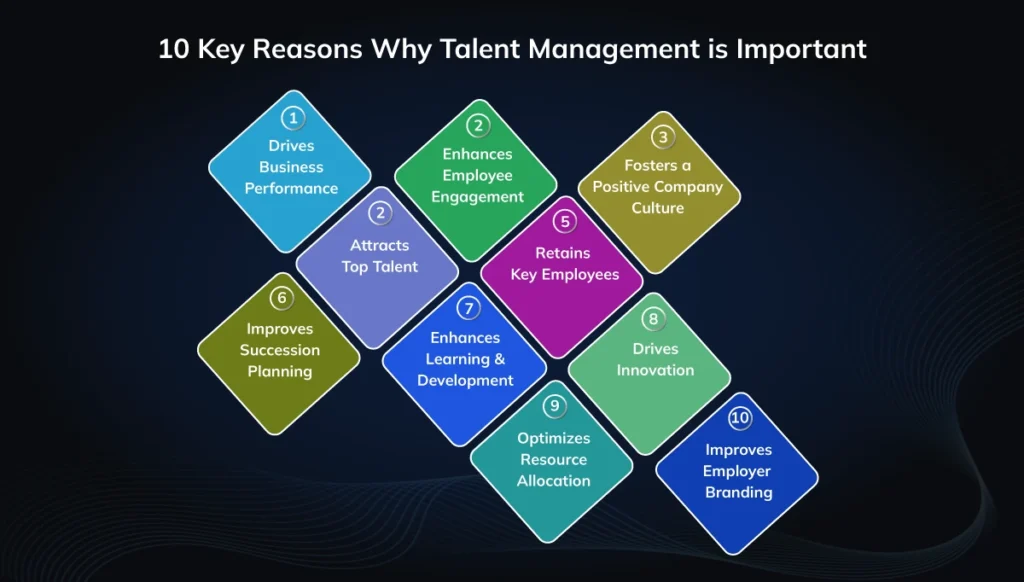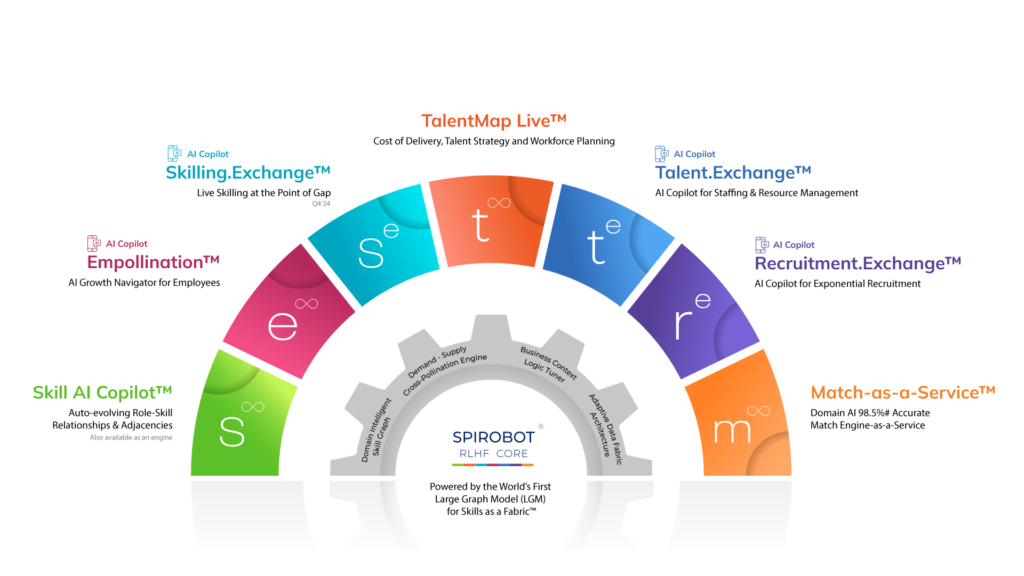In today’s competitive business landscape, a skilled and engaged workforce is no longer a luxury; it’s a necessity. Talent management is the strategic process of attracting, developing, retaining, and deploying high-performing employees. It’s the foundation for organizational success, driving everything from innovation and productivity to customer satisfaction and overall profitability.
10 Key Reasons Why Talent Management is Important
1. Drives Business Performance
- Enhanced decision-making: A skilled workforce can provide valuable insights and expertise, leading to better decision-making and strategic planning.
- Increased productivity: Engaged and motivated employees are more productive and efficient, contributing to overall business success.
- Improved innovation: A diverse and skilled workforce can foster creativity and innovation, leading to new products, services, and processes.
- Enhanced customer satisfaction: A satisfied workforce can improve customer service and satisfaction, ultimately driving business growth.
- Reduced costs: Effective talent management practices can help reduce turnover, absenteeism, and low productivity costs.
2. Enhances Employee Engagement
- Increased job satisfaction: Employees who feel valued and supported are more likely to be satisfied with their jobs.
- Reduced turnover: Effective talent management practices can help retain top talent, reducing costly turnover and disruptions.
- Improved morale: A positive work environment where employees feel valued and appreciated can boost morale and create a more enjoyable workplace.
- Enhanced employee well-being: A supportive and caring company culture can contribute to the overall well-being of employees, leading to increased job satisfaction and productivity.
- Improved employee loyalty: Engaged and satisfied employees are more likely to be loyal to the company and remain committed to its goals.
3. Fosters a Positive Company Culture
- Stronger employer brand: A company with a positive reputation as a great workplace can attract top talent and improve customer loyalty.
- Increased collaboration: A culture that values diversity and inclusion can foster collaboration and teamwork, leading to better problem-solving and innovation.
- Improved employee well-being: A supportive and caring company culture can contribute to the overall well-being of employees, leading to increased job satisfaction and productivity.
- Enhanced employee advocacy: Engaged and satisfied employees are likelier to be positive brand ambassadors and recommend the company to others.
- Reduced conflict: Engaged and satisfied employees are more likely to be loyal to the company and remain committed to its goals.
4. Attracts Top Talent
- Competitive advantage: A strong employer brand and attractive career opportunities can help attract top talent in a competitive job market.
- Reduced time-to-hire: Effective recruitment and onboarding processes can help fill positions quickly and efficiently.
- Improved quality of hires: A well-defined talent acquisition strategy can help identify and hire the best candidates for the job.
- Enhanced diversity and inclusion: A company with a solid commitment to diversity and inclusion can attract a broader range of talented individuals.
- Improved employee satisfaction: A company prioritizing attracting and retaining top talent can create a more satisfying and rewarding work environment.
5. Retains Key Employees
- Reduced costs: Replacing employees can be expensive and time-consuming. Effective talent management practices can help reduce turnover and associated costs.
- Preserved institutional knowledge: Retaining experienced employees can help protect valuable knowledge and expertise.
- Improved employee morale: Employees who feel valued and supported are likelier to be loyal to the company and remain committed to its goals.
- Enhanced employee development: Effective talent management practices can provide employees with opportunities for growth and development, helping them to stay engaged and motivated.
- Reduced risks: Retaining key employees can help mitigate risks associated with talent loss and disruption to business operations.
6. Improves Succession Planning
- Continuity of leadership: A well-developed succession plan can ensure a smooth leadership transition and minimize disruptions.
- Development of future leaders: Succession planning can help identify and develop high-potential employees for future leadership roles.
- Reduced risks: A well-planned succession plan can help mitigate risks associated with unexpected leadership changes.
- Improved employee morale: When employees see a clear path for career advancement, they are more likely to be motivated and engaged.
- Enhanced organizational stability: A well-planned succession plan can help ensure organizational stability and continuity.
7. Enhances Learning & Development
- Increased employee skills: Ongoing learning and development can help employees stay up-to-date with industry trends and improve their skills.
- Improved performance: Investing in employee development can improve performance and productivity.
- Enhanced career opportunities: Learning and development opportunities can help employees advance their careers and achieve their goals.
- Increased employee engagement: Employees who feel invested in their professional development are likelier to be engaged and motivated.
- Improved organizational agility: A workforce with the necessary skills and knowledge can help organizations adapt to changing market conditions and technological advancements.
8. Drives Innovation
- Empowered employees: A culture encouraging learning and innovation can enable employees to take risks and experiment with new ideas.
- Diverse perspectives: A diverse workforce can bring various perspectives and ideas to the table, fostering creativity and innovation.
- Reduced risk: Investing in innovation can help companies stay ahead of the competition and reduce risks associated with market changes.
- Improved product and service development: A culture of innovation can lead to the developing of new and innovative products and services.
- Enhanced customer satisfaction: Innovative companies can often provide better products and services that meet their customers’ needs.
9. Optimizes Resource Allocation
- Effective workforce planning: Talent management can help organizations identify skill gaps and allocate resources effectively to meet business needs.
- Reduced costs: By optimizing resource allocation, organizations can reduce costs and improve efficiency.
- Improved productivity: Employees with the right skills and resources can be more productive and effective.
- Enhanced organizational agility: Effective resource allocation can help organizations adapt to changing market conditions and business needs.
- Reduced risks: By optimizing resource allocation, organizations can reduce risks associated with understaffing or overstaffing.
10. Improves Employer Branding
- Positive reputation: A company with a strong reputation as a great workplace can attract top talent and improve customer loyalty.
- Increased employee advocacy: Engaged and satisfied employees are likelier to be positive brand ambassadors and recommend the company to others.
- Improved recruitment: A strong employer brand can make it easier to attract top talent and reduce time-to-hire.
- Enhanced customer satisfaction: A positive company culture can improve customer service and satisfaction.
- Increased organizational value: A strong employer brand can contribute to the overall value and reputation of the organization.
Spire.AI: Making Talent Management Easier
Implementing a comprehensive talent management strategy can be complex. Spire.AI is an innovative AI Copilot that simplifies and streamlines the process for all talent stakeholders.
Spire.AI offers a full suite of talent management solutions powered by AI and a domain-intelligent platform. Here are some ways Spire.AI helps organizations excel in talent management:
- Auto-Evolving Role-Skill Framework: Spire.AI utilizes a Large Graph Model (LGM) to create and maintain an auto-evolving role-skill framework, ensuring a single source of truth for skill requirements.
- Automatic Skill Profiles: Spire.AI automatically analyzes data sources to generate accurate employee skill profiles, eliminating manual data entry and providing a clear picture of employee skill sets.
- Career Path Simulation and Reskilling Recommendations: Spire.AI empowers employees to take ownership of their careers by providing personalized recommendations for upskilling and reskilling based on their aspirations and company needs.
- Talent Marketplace: Spire.AI facilitates internal mobility by creating a platform for employees to discover and apply for internal opportunities, fostering talent development, and optimizing resource allocation.
- Talent Acquisition: Spire.AI streamlines the recruitment process by automatically identifying and matching qualified candidates, reducing time-to-hire, and ensuring the right fit for open positions.
By leveraging the power of AI, Spire.AI removes the complexity of talent management and empowers organizations to unlock the full potential of their workforce. With Spire.AI, companies can create a thriving talent management ecosystem that drives business performance, fosters a positive culture, and ensures long-term success.
Final Thoughts
In today’s competitive business landscape, talent management is no longer a luxury; it’s a necessity. Organizations can drive business performance, enhance employee engagement, and foster a positive company culture by investing in attracting, developing, and retaining top talent.
Spire.AI is a powerful tool that can help organizations streamline their talent management processes and achieve their strategic goals. With its AI-powered solutions, Spire.AI can automate tasks, provide valuable insights, and empower employees to take ownership of their careers.
By prioritizing talent management, organizations can create a thriving workplace where employees feel valued, supported, and empowered to reach their full potential. This, in turn, will lead to increased productivity, innovation, and long-term success.







